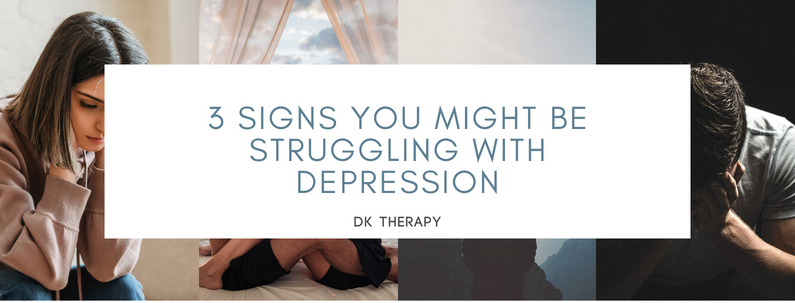
While there are millions of people across the world who have been diagnosed with depression, countless others struggle with depression without even knowing it.
Oftentimes this is because depression is commonly associated with feelings of deep sadness.
While many people who are depressed do experience strong feelings of sadness, there are many other feelings and experiences that can point to depression in addition to this one symptom.
Being aware of these signs is important because it can help people recognize if they or one of their loved ones may be depressed.
If you find yourself wondering whether you may be depressed, look out for signs and symptoms that you may be exhibiting over time.
Here are three potentially less common signs that you may be struggling with depression:
1. You are “predicting” the future
When we say this, we don’t mean that you’ve all of a sudden started looking at crystal balls or other mystic objects.
By predicting the future, we are talking about adopting a fixed mindset about what your life is going to look and feel like down the road.
Saying things like, “I will always feel this way,” or “I’m never going to be as happy as the people around me” are statements that demonstrate future-predicting behavior.
When people experience depression, they tend to have a limited view of their future, and they believe that they are hopeless about their current or future situations in life.
 Instead of recognizing that the feelings they are experiencing now may be different later on or having hope that their life is filled with endless possibilities, they believe they already know what the future holds- and it’s grim.
Instead of recognizing that the feelings they are experiencing now may be different later on or having hope that their life is filled with endless possibilities, they believe they already know what the future holds- and it’s grim.
If you notice yourself falling into this thought pattern, you may be experiencing depression.
2. You are unusually irritable
We all have bad days or experiences when we are more likely to get upset with others around us. However, when these bad days start to happen more frequently to the point that we are irritable every single day, this can be a sign of depression.
When people characterize people who experience depression, they often focus on feelings of hopelessness and sadness. While these feelings are often present, irritability is an overlooked symptom that is commonly present in those with depression as well.
A study published in JAMA Psychiatry found that more than half of participants with depression experienced “overt irritability.”
If you are experiencing uncharacteristic levels of irritability, this can be a sign that you are depressed.
3. Your habits are changing
Another major sign of depression is a drastic change in habits. If you’ve noticed major differences in your sleeping, eating, hygiene, or recreational habits, you might be struggling with depression.
Sleep habits
Many people with depression experience shifts in their sleeping habits. This can include oversleeping and lacking the energy to get through the day without taking a nap or getting an excessive amount of sleep at night. It can also swing to the other end of the spectrum and include insomnia and difficulty sleeping, too.
Eating habits
Sometimes people with depression will overeat because they are eating to cope with their difficult emotions or skip meals because they don’t have the energy to prepare meals for themselves. This lack of energy can also lead to an increase in purchasing fast food or sugary food items instead of healthier options.
Hygiene habits
People with depression have expressed having difficulty maintaining their hygiene standards. Some have trouble brushing their teeth every day, washing their hair, or showering regularly.
If you normally bathe and take care of other hygiene standards regularly, but you are struggling to do so now, you may be feeling depressed.
Recreational habits
One of the most well-known signs of depression is a loss of interest in activities that used to be enjoyable.
If you always liked to play guitar, grab a drink with friends, or go on a run after school or work, but you are finding yourself lacking interest in these activities, it is a sign that you may be experiencing depression.
Next steps
While exhibiting the signs above does not guarantee that you are depressed, you should consider speaking with a therapist if you notice these signs, especially if they persist over a long period of time. Here’s a link to schedule an appointment with one of our therapists.




